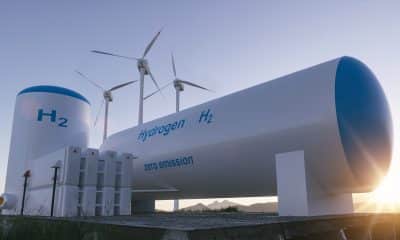Business
Petroleum Min proposes changes in law to include hydrogen in mineral oil
The petroleum ministry has proposed amendments to existing law to include cleaner sources of energy like hydrogen within the definition of ‘mineral oils’ for which the government gives out licence to explore and produce.
Seeking stakeholder comments, the ministry said the Oilfields (Regulation and Development) Amendment Bill 2021 proposes to amend the present Act to “create opportunities for exploration, development and production of next-generation cleaner fuels and mitigate regulatory challenges and risks.”
It also proposes a new definition of ‘mineral oils’ by including within its ambit modern and cleaner sources of energy like hydrogen.
Conventionally, mineral oil is understood to mean hydrocarbons in various forms including natural gas and petroleum oil.
In the aftermath of the COVID-19 pandemic and the Paris Climate Change Agreement, the global community is committed to developing and using clean energy sources. Hydrogen gas is one such clean source of energy, which can be produced, distributed and regulated in conjunction with natural gas, it said.
“Presently, the Oilfields (Regulation & Development) Act, 1948 deals with ‘mineral oils’ as understood in the conventional sense. In order to facilitate the development and production of alternative/derivative clean energy sources that are being or may be developed in future, this Bill seeks to redefine ‘mineral oil’,” the draft said.
The term as defined in the Bill includes not merely hydrocarbons but also the next-gen fuels viz. ‘other gases which are capable of being used as fuels occurring in association with mineral oils or can be produced from mineral oils such as hydrogen’.
The Bill also seeks to foster investment in the exploration and production of oil and gas by offering a lease on stable terms and enabling the government to prescribe a compensation mechanism to protect the investment.
The compensation shall be payable in case of suspension, revocation or cancellation of the lease or in case of restriction of access to the leased area.
The Bill also seeks to explicitly enumerate the power of the government to prescribe rules for the extension of the period of the lease, the maximum or minimum area of the lease, a mechanism for determination of the economic life of the oilfield, terms for merger or combination of leases and resolution of disputes.
It provides for the imposition of fines of up to Rs 1 crore for the first contravention of provisions of any rules. Subsequent contraventions will attract a fine of up to Rs 10 lakh per day.
The Bill also seeks to empower the government to recover royalty, cess, lease or licence fee, penalty payment under the law, the draft said.












































